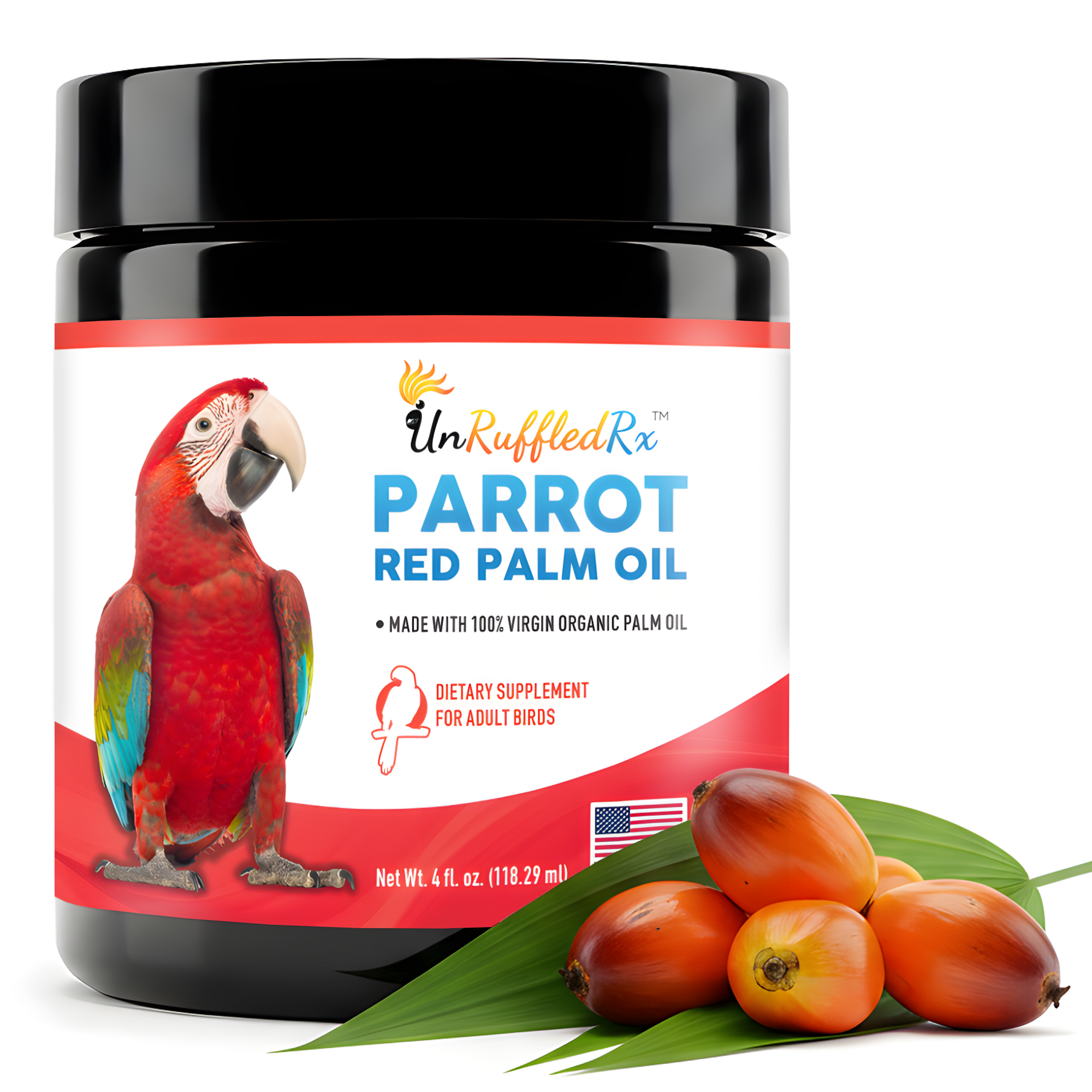What Are Probiotics For Birds?
What’s the squawk about Parrot Probiotics, you ask?
Probiotics are defined as bacteria that provide health benefits when consumed in the correct proportions. They naturally support mood and stress management, hormone management, and most importantly, immunity. There are a lot of studies showing the correlation between gut microbes and the central nervous system. Parrots are quite susceptible to stress - which often results into feather plucking.
All animals have billions of beneficial bacteria in their digestive system as well as harmful bacteria. Birds are no exception. Helpful bacteria aid actually aid the digestion process and help in nutritional absorption. Without beneficial bacteria, our guts would become over-populated with harmful bacteria that can make us sick. It is thought the beneficial bacteria in the gut is species specific. So, you wouldn’t want to give your bird human grade probiotics, or those developed for use in dogs. Avian vets suggest that Avian specific probiotics be used for our pet birds.
You probably know that all organisms have both healthy and unhealthy bacteria in their gut. Probiotics introduce a range of healthy bacteria into the digestive system, which then adhere to the gut colonizing so profusely that the unhealthy bacteria can't attach to intestinal cells, so they just "wash out" the next time that the bird poops. Parrot probiotics consist of a highly concentrated source of beneficial bacteria found in the avian gut.
Avian probiotics may boost your birds immunity. Avian probiotics support immunity and may even stimulate the immune system. It’s the harmful bacteria that cause diarrhea, other digestive and other illnesses.
Avian probiotics cultivate colonies of healthy bacteria all along the digestive tract. When a "bad" bacteria enters the body it can't adhere to cell walls and thus, gets "washed out" when the bird poops.
Avian Probiotics support stress management. Birds undergo stress at different times in their life, including hatching, temperature changes, transportation, new environments, and feed and water changes. Environmental changes are also quite stressful for a bird. Examples of environmental stress may be moving, getting a new puppy or kitten, bringing in a new flock-mate, and a change in the amount of attention the bird gets from a caretaker. Physical stressors can also make a pet susceptible to becoming ill. Whether it be an injury, not getting enough sleep, or even going through a molt.
Avian Probiotics may reduce the severity of skin disorders, a common precursor to feather plucking. Some probiotics help give the immune system a boost and inhibit inflammatory reactions.
What should I look for in specialty Avian Probiotics?
Different species rely on different types of healthy bacteria. So, a dog needs dog specific probiotics and birds need avian specific probiotics. Research has shown that even individual bird species have a unique colony of helpful bacteria.
A quality for avian probiotic will contain bacteria strains that are actually inhabit the avian gut. "These are mostly Lactobacillus bulgaricus, Lactobacillus acidophilus, Lactobacillus casei, Lactobacillus helveticus, Lactobacillus lactis, Lactobacillus salivarius, Lactobacillus plantarum, Streptococcus thermophilus, Enterococcus faecium, Enterococcus faecalis, Bifidobacterium spp. and Escherichia coli. With two exceptions, these are all intestinal strains."

Labels Matter! Here's what to look for when choosing a quality avian probiotic:
|
✔ Does the label identify at least 3-5 strains of Lactobacillus? Lactobacillus should be the cornerstone of the formula. |
|
✔ Are at least two of the following bacterial strains in the formula?
|
|
✔ Is the formula a viable, live strain? What good are dead beneficial bacteria? Dead bacteria can't multiply in the gut. |
|
✔ What are the number of organisms in the product? They are usually listed per gram of formula. A bacterial count of 2.0 X 108 C.F.U. per gram is a good level. |
|
✔ Look for a non-GMO product. Kosher is always better! |
When Should I Use Probiotics With My Parrot
We recommend that you always keep a fresh bottle of UnRuffledRx Avian Probiotics on hand.
Any time that your bird is on antibiotics or it gets stressed, it provides an opportunity for the harmful bacteria to take over. This could be anything from a fright to a molt to a broken blood feather to an environmental or physical change. When your bird is on antibiotics, both beneficial and harmful bacteria are eradicated, at which time, more robust harmful bacteria take over the gut unless you provide assistance with avian specific probiotics.
According to Margaret Wissman, DVM Avian Specialist, “My own birds, both pet and breeders, all receive probiotics on a daily basis, year-round. Studies have shown that birds receiving probiotics may be able to fight challenges from bacterial organisms better than those that do not get them.”
Shouldn't you be providing your parrots with probiotics?
Resources:
(1) ‘The Role of Probiotics in the Poultry Industry’, S. M. Lutful Kabir, International Journal of Molecular Sciences. 2009, pgs, 3531-3546.
(2) ‘Probiotics Shown To Change Bacterial Community Structure in the Avian Gastrointestinal Tract’ , Trudy Netherwood, H. J. Gilbert, D. S. Parker, and A. G. O’Donnell, “Applied and Environmental Microbiology”, Nov. 1999, p. 5134–5138 Vol. 65, No. 11, Published by: American Society for Microbiology. .
(3) ‘Systemic augmentation of the immune response in mice by feeding fermented milks with Lactobacillus casei and Lactobacillus acidophilus’. G Perdigón, M E de Macias, S Alvarez, G Oliver, and A P de Ruiz Holgado, “Immunology” , Jan 1988, Published by the British Society for Immunology.
(4) 'Feeding Parrots: Avian Probiotics' Leslie Moran,
"https://bestbirdfoodever.com/2010/07/feeding-parrots-avian-probiotics/. July 12, 2010.
(5) Avian Probiotics. 'Jeanne Smith, DVM. https://avianhealthproducts.com/probiotics-information.html, 2017.
Hey, please leave a comment or share this on your social media if you love this post!














